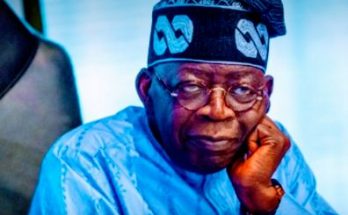The words “It is finished” may indeed be an epitaph for Nigerian democracy, because the people will rise soon.
By Fada Emmanuel Uchechukwugeme Ogbu.
“It is finished;” such were the words uttered by Jesus on the cross that marked the end of His earthly mission. However, for Nigeria’s democratic process, it seems that the words “It is finished” are also a fitting epitaph. Following the recent Kano State appeal judgment, and the subsequent saga of the multiple certified true copy of the judgment, the nation’s democratic development has been brutalised by the Nigerian judiciary. This is where we are and what the senselessness and selfishness of our so called ‘elites’ have brought us.
Recall that Nigeria’s democratic development was seen as a beacon of hope for Africa, following the end of military rule in 1999. Over the subsequent years, we have held several elections, some of which had been acknowledged as ‘free and fair’. However, in recent times, there has been a growing concern about the nation’s democratic process, as highlighted by the recent off-season governorship elections in Imo, Kogi and Bayelsa, and the Kano State Appeal Court judgment.
The Kano State appeal judgment was a landmark ruling in Nigeria’s democratic process. Following the governorship elections in Kano State in 2019, then candidate of the People’s Democratic Party, Abba Kabir Yusuf, challenged the results, and a tribunal was set up to adjudicate the matter. In March 2020, the tribunal declared that the elections were inconclusive and subsequently ordered a rerun. The incumbent governor, Abdullahi Umar Ganduje, appealed this decision, and on July 31, 2020, the Court of Appeal in Kaduna declared him the winner of the elections.
This very judgment has far-reaching implications for Nigeria’s democratic development. Firstly, it undermines the credibility of the judiciary.
The manner in which the judgment was delivered, with the Court of Appeal not providing any reasons for its decision, raises questions about the impartiality and independence of the judiciary.
Secondly, it sets a dangerous precedent for future elections, where the courts can undermine the will of the people by overturning election outcomes. This could further entrench the perception that elections in Nigeria are determined by the courts, not the ballot box.
Then why do we still live under the pretence of democracy? Why do we waste so much money in an electoral process that the winner is pre-determined before the ballot ceremony?
These questions and more that have been bugging the mind of many progressives and right thinking Nigerians have remained unanswered, then came the Saga of the Multiple Certified True Copy of a judiciary Judgment.
Unbelievable and incredible! The former Kano State appeal judgment that I spoke about earlier is now further complicated by the recent saga of the multiple certified true copy of the judgment. Following the delivery of the judgment, multiple copies of the document were circulated on social media, with each copy having different page numbers, signatures, and stamps. This cast doubt on the authenticity of the document and raised questions about the integrity of the judiciary.
So where do we go from here? I grew up to know that ‘protest’ is a civic right in a democratic society. Why are our own cases different or are we denying the fact that we are pretentiously practising a fake democracy?
Why clamp down on people whose civic rights are being criminally taken away? How long do we think we can sustain this criminality in a country of best talents?
I want to remind those behind this destructive move that the saga of the multiple certified true copy of the judgment has further undermined the credibility of the judiciary and may result to what anybody cannot control. It raises questions about the transparency and accountability of the judicial process, and it further entrenches the perception that the courts are susceptible to political interference. It also highlights the urgent need for reforms within the judiciary, aimed at improving its independence and accountability. But who is reforming what? Everything is finished.
I would like to conclude by saying that the Nigerian democratic process has been brutalised by the recent Kano State appeal judgment and the saga of the multiple certified true copy of the judgment in Kano State. When I listen to people in national media defending the situation by saying that ‘it shows the judiciary can make mistakes’, and that it is a ‘clerical error’, I tell myself that this ‘unholy marriage’ is a scam and that it is really finished. The government (if there’s still any sense in the name) must take urgent action to address these issues and protect our ‘quangara’ democratic development. If not, the words “It is finished” may indeed be an epitaph for Nigerian democracy, because the people will rise soon.
I and every other Nigerian expected the apex court to come out clean and save its battered image in this case of Kano CTC trajectory, which it did by restoring Governor Yusuf’s mandate.
Had it been otherwise, it would have given us the impression that judiciary’s role in a democratic society doesn’t matter. The judiciary role cannot be over emphasised, it is paramount in every democratic society. Let us see it work again.
God bless us all!




